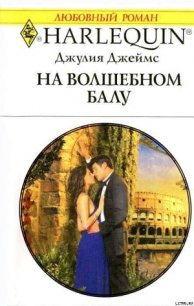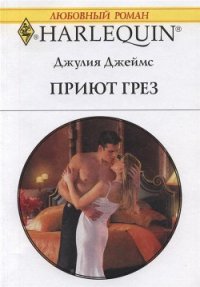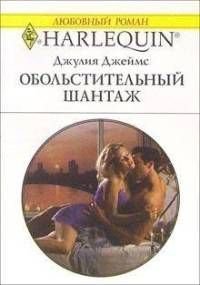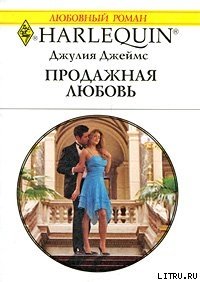Julia Ward Howe - Richards Laura E. (бесплатная регистрация книга TXT) 📗
"June 26. To visit the penitentiary, where thirty Mormon bishops are imprisoned for polygamy. Spoke with one, Bishop of Provo, a rather canny-looking man, whom we found in the prison library, reading. The librarian (four years' term for forgery) told me it was the result of liquor and bad company. I said a few motherly words to him and presently proposed to speak to the prisoners, to which the jailer gladly assented. I began by saying, 'I feel to speak to you, my brothers.' Said that all of us make mistakes and many of us do wrong at times. Exhorted them to give, in future, obedience to the laws upon which the existence of society depends. The convict Montrose sent to me a little chain and ornaments of his own making. I promised to send one or two books for the library...."
So, through "bowery and breezy Nebraska; such a relief to eyes and nerves!" to Chicago, where Maud kept and comforted her as long as might be, and sent her refreshed on her way; finally to Boston, where she arrived half-starved, and so to Newport.
To Maud
July 8, 1888.
Grumble, grumble—tumble, tumble,
For something to eat,
Fast-y fast-y nasty, nasty,
At last, at last-y,
Ma's dead beat!
"Oh! the dust of it, and the swirl, in which the black porter and the white babies all seemed mixed up together. A few dried and withered old women, like myself, were thrown in, an occasional smoky gent, and the gruel 'thick and slab,' was what is called Human Nature! This is the spleeny vein, and I indulge it to make you laugh, but really, my journey was as comfortable as heat and speed would allow. Imagine my feelings on learning that there was no dining or buffet car! Do not grieve about this, the biscuits and bananas which you put up carried me quite a way. We got a tolerable breakfast at Cleveland, and a bad dinner at Buffalo, but dry your eyes, the strawberry shortcake was uncommonly good. And think how good it is that I have got through with it all and can now rest good and handsome."
The summer entries in the Journal are varied and picturesque. "My cow, of which I was fond, was found dead this morning.... My neighbor Almy was very kind.... I feel this a good deal, but complaining will not help matters."
"Mr. Bancroft [George], historian, brought Dr. Hedge to call after dinner. Mr. B. kissed me on both cheeks for the first time in his life. We had a very pleasant and rather brilliant talk, as might have been expected where such men meet."
She writes to Maud:—
"Mr. Alger seized upon my left ear metaphorically and emptied into it all the five-syllable words that he knew, and the result was a mingling of active and passive lunacy, for I almost went mad and he had not far to go in that direction."
And again; apropos of ——: "How the great world does use up a man! It is not merely the growing older, for that is a natural and simple process; but it is the coating of worldliness which seems to varnish the life out of a man; dead eyes, dead smile, and (worst of all) dead breath."
"September 23. To church in Newport. A suggestive sermon from Mr. Alger on 'Watching,' i.e., upon all the agencies that watch us, children, foes, friends, critics, authorities, spirits, God himself.
"As we drove into town [Newport] I had one of those momentary glimpses which in things spiritual are so infinitely precious. The idea became clear and present to my mind that God, an actual presence, takes note of our actions and intentions. I thought how helpful it would be to us to pass our lives in a sense of this divine supervision. After this inward experience I was almost startled by the theme of Alger's sermon. I spoke to him of the coincidence, and he said it must have been a thought wave. The thought is one to which I have need to cling. I have at this moment mental troubles, obsessions of imagination, from which I pray to be delivered. While this idea of the divine presence was clear to me, I felt myself lifted above these things. May this lifting continue."
"November 4. In my prayer this morning I thanked God that I have come to grieve more over my moral disappointments than over my intellectual ones. With my natural talents I had nothing to do: with my use or abuse of them, everything.
"I have thought, too, lately, of a reason why we should not neglect our duty to others for our real or supposed duty to ourselves. It is this: ourselves we have always with us; our fellows flit from our company, or pass away and we must help them when and while we can."
On December 5 she hears "the bitter news of Abby May's death. Alas! and alas! for the community, for her many friends, and for the Club and the Congress in which she did such great silent service. God rest her in His sweet peace!"
On Christmas Day she went to "Trinity Church, where I enjoyed Phillips Brooks's sermon. Felt much drawn to go to communion with the rest; but thought it might occasion surprise and annoyance. Going into a remote upper gallery I was present at the scene, and felt that I had my communion without partaking of the 'elements.' These lines also suggested themselves as I walked home:—
"The Universal bread,
The sacrificial wine,
The glory of the thorn-crowned head,
Humanity divine."
"The last day of the year dawned upon me, bringing solemn thoughts of the uncertainty of life, and sorrow for such misuse of its great gifts and opportunities as I am well conscious of. This has been a good year to me. It carried me to the Pacific slope, and showed me indeed a land of promise. It gave me an unexpected joy in the harmonious feelings toward me and the members of A.A.W. at the Detroit Congress. It has, alas! taken from me my dear pastor, most precious to me for help and instruction, and other dear and valued friends, notably Sarah Shaw Russell,[106] Abby W. May and Carrie Tappan.[107] I desire to set my house in order, and be ready for my departure; thankful to live, or willing to cease from my mortal life when God so wills...."
CHAPTER VI
SEVENTY YEARS YOUNG
1889-1890; aet. 70-71
The seven decades of my years
I figure like those Pleiad spheres
Which, thro' the heaven's soft impulse moved,
Still seek a sister star beloved.
Thro' many sorrows, more delight,
Thro' miracles in sound and sight,
Thro' battles lost and battles won,
These star-spaced years have led me on.
Though long behind me shows the path,
The future still its promise hath,
For tho' the past be fair and fond,
The perfect number lies beyond.
J. W. H.
She was dissatisfied with herself in these days.
"January 1, 1889. In my prayer this night I asked for weight and earnestness of purpose. I am too frivolous and frisky."




